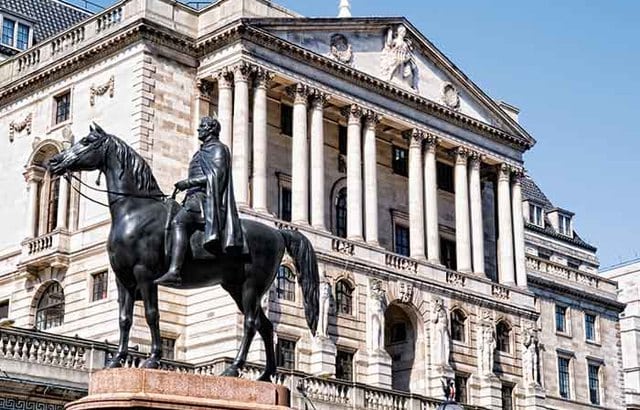At its meeting on 1 November, the Monetary Policy Committee voted by 7-2 in favour of raising the rate to 0.5%, a 25bps rise.
It also unanimously agreed to maintain the QE programme and the buying of £10bn corporate bonds and £435bn worth of gilts.
In a statement, the central bank predicted inflation would peak at 3% in October, and added it expected GDP to grow “modestly” over the next few years while consumption growth would remain sluggish and trade reliant on the weakness of sterling and strong global growth.
Correction of a past mistake
Many in the industry have touted the hike as a correction of a past mistake.
Aberdeen Standard Investments chief economist Lucy O’Carroll said the “symbolism” of the hike was “more significant than its economic impact”.
While Ben Yearsley, director at Shore Financial Planning, said: “Last year’s post Brexit vote cut was unnecessary and actually created more problems. Ultra low rates have kept moribund companies alive, stifled innovation, and had a massive knock on impact for pension deficits. Companies having to plug pension deficits, partially due to these low rates, has taken cash away from investment.”
What next?
The industry is split over whether the initial rise signals more to come in future.
Some agree that rates will rise slowly over the next two years, while others say the UK economy is simply too weak to handle a raft of increases given the headwinds of slowing growth and the unknowns of Brexit.
Ian Kernohan, economist at Royal London Asset Management, said: “We assume that the MPC will raise rates slowly over the next two years, assuming a Brexit deal is visible by mid-2018, unemployment remains low and global growth holds up.
However, he added: “With inflation set to fall next year as the impact of sterling devaluation wanes, the MPC will stop hiking if there are clear signs that the economy is slowing.”
Anthony Doyle, M&G’s fixed interest investment director, said the hike was difficult to justify and labelled it a “weak hike”.
It could even push inflation higher, he said.
“The increase is difficult to justify given the ongoing political uncertainty that surrounds Brexit and the slow progress of negotiations between the UK and the EU,” Doyle said.
“We expect to see increasing signs of slowing investment, falling consumer confidence and economic weakness unless a material agreement or transitional deal can be reached on the future UK-EU trading relationship.
“However, the MPC clearly has a different view, and are worried that there is limited spare capacity in the economy which may lead to higher wages and above-target inflation.”










